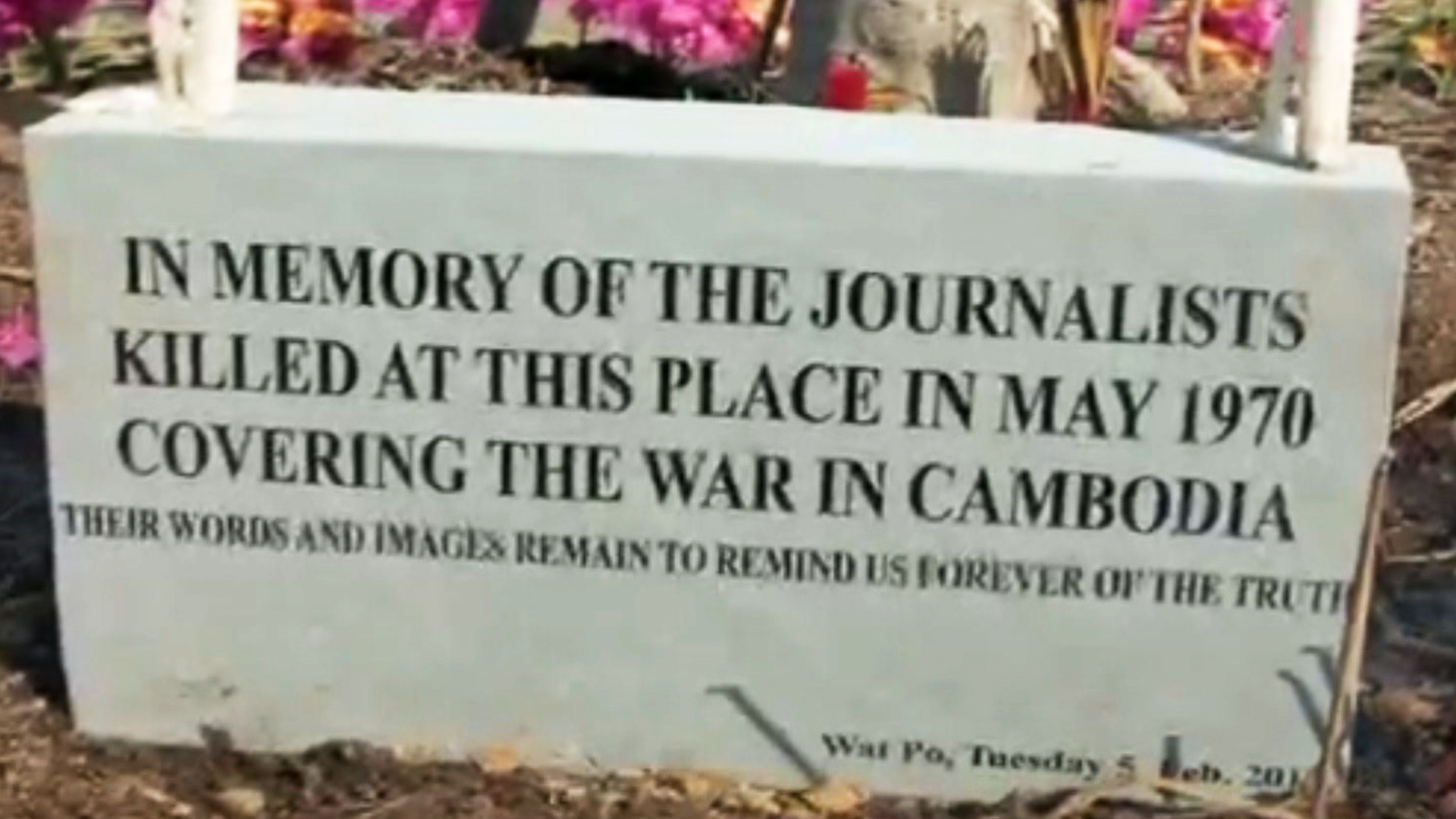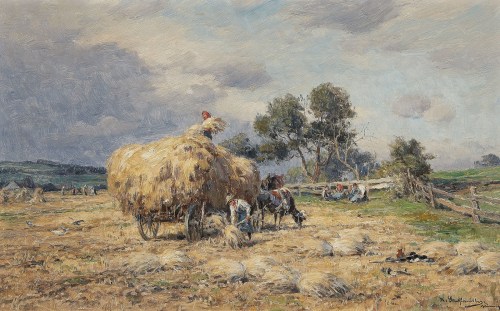
They don’t make it easy, to quote Megan Markle speaking on quite another subject. I was actually trying to wrest the immoveable foil covering off the plastic milk bottle, and as usual was giving up, finding a sharp pointed knife, and prizing it off.
I thought of the good old days, when we had shiny aluminium tops on glass bottles, which were washed out every day to be exchanged for a fresh bottle of milk the next day. It was usually delivered by the milkman driving his horse and milk cart – the horse, so familiar with the routine – that he stopped and started at each house, while the milkman ran in and out of each gate to leave the milk bottles on the door-step.
He was an un-official social worker as well as a milkman, and if the milk went uncollected for more than a day he’d check in the house or alert the neighbours, and many an old person was rescued from illness or accident in this way.
Before the aluminium tops, we had cardboard lids on the bottle with a little cut-out circle indented in the centre which we pushed open, if the sparrows hadn’t got there before us. They enjoyed the cream as much as we did – yes, we had cream in our milk in those days, you could either pour it off to save and consume as cream, or you shook the bottle up, and distributed the cream throughout the milk.
Sometimes at school, instead of drinking our half pint of milk given to us every day by a benevolent state, we shook up the bottle for fun until we’d made a knob of butter from the cream, and later spread it on our lunch-time potatoes. We also used the cardboard circle from the bottle to wind wool round and make bobbles, or thread on a ribbon and paint for Christmas decorations
Prising the top off the milk isn’t the only strongman feat I’m forced to perform every day. If I want to open a bottle of vitamins there’s a tight clear plastic wrapper bonded to the bottle and the lid. When, with a pair of nail scissors I’ve managed to break into this casing, and unscrewed the lid, there’s the same sort of stiff foil lid stuck irrevocably to the bottle as with the milk. More jabbing with knife or scissors, and when I finally wriggle into the jar, there’s a long wad of cotton wool to drag out into the light of day. The pile of plastic rubbish from just one small bottle of vitamins is outrageous.
A packet of bacon? Plastic wrapped cheese sweating in the casing? A new toothbrush – that truly is the worst – it’s almost impossible to break into all the wrappings, both plastic and cardboard, that bar entry to a simple toothbrush.
I waste hours of my life trying to gain access to items of food and household products which were once sold loose, but now need equipment in order to eat, drink, use or cook.
When I used to read the Manchester Guardian in my salad days I was transfixed with wonder, when a woman wrote to say she was tired of trying to break into biscuit packets. Back then in 1965, it seemed like a miracle that biscuit manufacturers got the message, listened to a woman and provided consumers with a tab to pull, so as to gain entry to said biscuits. We really can be heard, and can change things, I gloated, somewhat prematurely it seems.
For today, health and safety and hygiene requirements, techniques for packaging to extend ‘shelf life’, marketing strategies to make products seem more desirable, have meant that most food items are now locked away behind plastic, unless it’s an unwashed potato . So even though we virtue signal with plastic bags banned in our supermarkets, we still have mountains of plastic rubbish after each shopping trip, be it a new shirt, or a bag of rice. The sort of plastic rubbish that pollutes oceans and clogs up the stomachs of whales and sea-birds, fouling the oceans and killing the wild life.
And speaking of potatoes, in my youth we bought muddy potatoes in a small hemp sack. The mud preserved the minerals in the spuds, and the darkness of the sack kept them fresh, so even at the bottom, the potatoes were still good to eat. Washed potatoes in a see-through plastic bag, the very opposite of mud and sack, means that the soil around the potatoes which preserved them has gone, so they go stale and lose much of their nourishment, while the clear plastic lets in light so they deteriorate quicker. And what about parabens?
So I buy unwashed potatoes, and being somewhat lazy, I now get the mud off by washing and scrubbing them with pan scourer, kept especially for the purpose.
A friend gave me some of her new laid eggs from her hens and brought back long forgotten childhood memories as she wrapped each egg in a small piece of torn newspaper, before laying them in my little basket. There was something very sweet in the gentle handling and detailed care with which she wrapped and packed them. It felt a world away from the dull supermarket routine of shopping in bulk.
Before the coming of super-markets, we shopped every few days, meeting and greeting neighbours and other shoppers as we walked to the grocer, who was often ‘on the corner’. It’s now acknowledged that this simple routine was a wonderful boost to everyone’s emotional well-being as they connected with neighbours, and nodded to strangers who became familiar during the regular shop. We took baskets and string bags and no-one expected a shop to wrap everything we bought.
Shops had regular hours, so when you ran short of sugar or needed an onion, you had no 24- hour dairy or superette to fall back on. Instead you fell back on your neighbours, and a child was often dispatched to borrow half a cup of sugar, or a jug of milk. These small inter-actions and friendly connections stimulated a sense of community. The sharing of garden produce, small helpful deeds and kindnesses, borrowing and returning, nourished human relationships, friendships and neighbourhoods, fostering small societies, and creating villages within villages.
And back then there were plentiful bus services and little local railway branch lines, so people didn’t need cars. It was easy to move from village to town, or town to city on reliable public transport, and there were no roads clogged up with parked cars or traffic jams of weary people. I don’t remember pollution either…
When we all get down to the serious business of becoming carbon free, and relinquishing our right to car ownership, maybe the powers that be will re-instate these antiquated forms of transport. The one thing I do hope no-one suggests, be they government agencies or climate campaigners, is to use a horse and trap, or other animals as beasts of burden. The blessing of the motor car was that we gave up exploiting animals to get us around, flogging them to death, with overwork or not enough food.
Yet at the moment we still seem to have a mind-set which involves the right to own our own transport. The car industry estimates that there are 1.3 billion cars on the road at the moment and projections rise to two billion by 2035. Cars are a passion, both in the first world and the third world, and technology is forever coming up with new ideas for a driving future. Yet all this effort, which is now going in the direction of self-driving electric cars, seem self-defeating to me, since each such vehicle requires the equivalent of 40 desk top PC’s in energy consumption for the computer brain. Then there’s the energy needed for the battery. So much for reducing carbon emissions.
Maybe the challenge of tackling transport, climate change, pollution, the plague of plastic and all the other problems of our wasteful throwaway and over packaged society is to find a way of life which is as simple as the one I remember. It was a way of life in which we lived ‘care-fully’, buying food in small amounts so we had no wastage, a way of life in which we used public transport and helped each other in small, kind and ‘care-full ways’. ‘Small is Beautiful’, Schumacher’s creed, now overtaken by globalism, may be the answer to the huge problems of over-consumption, wasteful habits and huge soul-less cities, whether buying the family groceries, owning a car, or finding a happy home.
A Guardian article some years ago wrote that; ‘Schumacher warned against exactly the issues we are now dealing with as levels of mental illness – depression, anxiety, panic attacks, stress – rise and the World Health Organisation predicts that depression will be the second most common health problem in western developed nations by 2020.This was what Schumacher feared, and his answer was “small is beautiful”.’
Schumacher’s thesis was that we should go back to the human scale: human needs and human relationships. He felt that from that small scale would spring the ethical response of stewardship to the environment.
And as we re-create such small kind communities, I’d be grateful if we could also solve the plastic crisis, and mountains of resulting rubbish. The wasted hours spent tackling the menace of packaging could be used for so many other small and beautiful pleasures. Dwight Eisenhower once remarked that in his childhood, “Our pleasures were simple – they included survival”. That could well be the case in the future.
Food for Threadbare Gourmets
Though I love leftovers, leftover slices of slices of breast from a roast chicken can be boring. My way round this last night was to combine leftover mushrooms, cooked in garlic, cream and parsley, with the chicken. To top up this mix, I added more garlic and parsley, and the essence poured off from the hot chicken the day before. A little cream to make it thick and delicious, and the chicken was transformed. Eaten with mashed potatoes, peas and fresh spring asparagus it was as good as the original roasted chicken.




